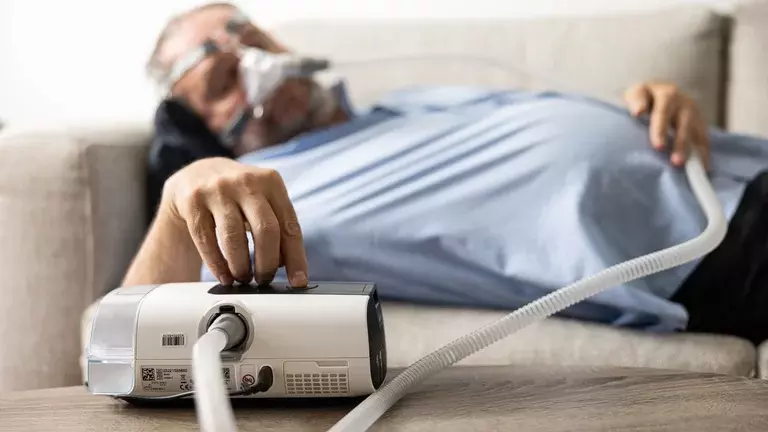Sleep Apnea: Everything You Need To Know About it

Ever wake up feeling exhausted, even after a full night's sleep? You might be surprised to learn it could be due to a condition called sleep apnea. In this blog post, we'll delve into what sleep apnea is, the different types, and how treatments like CPAP machines can dramatically improve your sleep quality and overall health.
What is sleep apnea?
Sleep apnea is when you stop breathing and start again while you're asleep. The most common kind is called obstructive sleep apnea (OSA). It's important to treat sleep apnea because it can cause serious health issues.
Types of sleep apnea
Treatment-emergent central sleep apnea (complex sleep apnea): Sometimes, OSA can turn into CSA when you start treatment for OSA.
What is the home oxygen concentrator and how does it help sleep apnea?
A home oxygen concentrator is a medical device that helps people with respiratory conditions get the needed oxygen.
It works by taking in air from the surrounding environment, filtering out nitrogen and other gases, and delivering purified oxygen through a nasal cannula or mask to the person using it.
This device is typically used by individuals who have low oxygen levels in their blood due to conditions such as chronic obstructive pulmonary disease (COPD), emphysema, or certain heart conditions.
Home oxygen concentrators are designed for use in a home setting and provide a continuous supply of oxygen to support breathing and improve oxygenation levels in the body.
How does a home oxygen concentrator work
A home oxygen concentrator is a machine that provides you with more oxygen than what's in regular air. Normally, air has about 20% oxygen. But an oxygen concentrator takes in air from the room, cleans it up, and gives you air that's about 90%-95% oxygen
A CPAP machine typically has
- A mask that covers your nose, or both your nose and mouth
- Straps to keep the mask in place
- A tube that links the mask to the machine's motor
- A motor that pushes air into the tube
The advantages of CPAP
The advantages of using a CPAP machine are widely known. These devices provide a steady flow of oxygen to your body while you sleep, preventing the short pauses in breathing that are characteristic of sleep apnea.
With continued use over time, the benefits of CPAP tend to become even more pronounced.
- You'll sleep better and snore less.
- You'll feel less tired during the day.
- It helps prevent or manage high blood pressure.
- It reduces the risk of stroke.
- It improves memory and other thinking abilities.
Disadvantages of home oxygen concentrator
home oxygen concentrators have some downsides, despite their convenience. The main one is that they need a steady power source. You'll need a battery backup or generator if the power goes out.
Older models might be noisier than oxygen tanks. Plus, if you have a stationary one, you'll have to change filters often and get it serviced regularly.
Like oxygen tanks, concentrators can also have side effects like dry or bloody noses, morning headaches, and feeling tired.
What's the Effect of CPAP Machine on Your Body?
Before CPAP:
- You might feel tired during the day because you're not getting enough quality sleep.
- You might snore loudly or stop breathing briefly while you sleep.
- You could have headaches in the morning or feel irritable.
After CPAP:
- You'll likely feel more rested and alert during the day because you're getting better sleep.
- Your snoring may decrease or stop altogether, and you'll breathe more regularly while asleep.
- Morning headaches and irritability might improve or go away.
Cases recovered from lack of oxygen
There is someone who was struggling with snoring and Symptoms of Depression and Anxiety and Lower Blood Pressure, after visiting the doctor he was diagnosed with sleep apnea he used CPAP machine and then after a few weeks Treated hypoxia at home